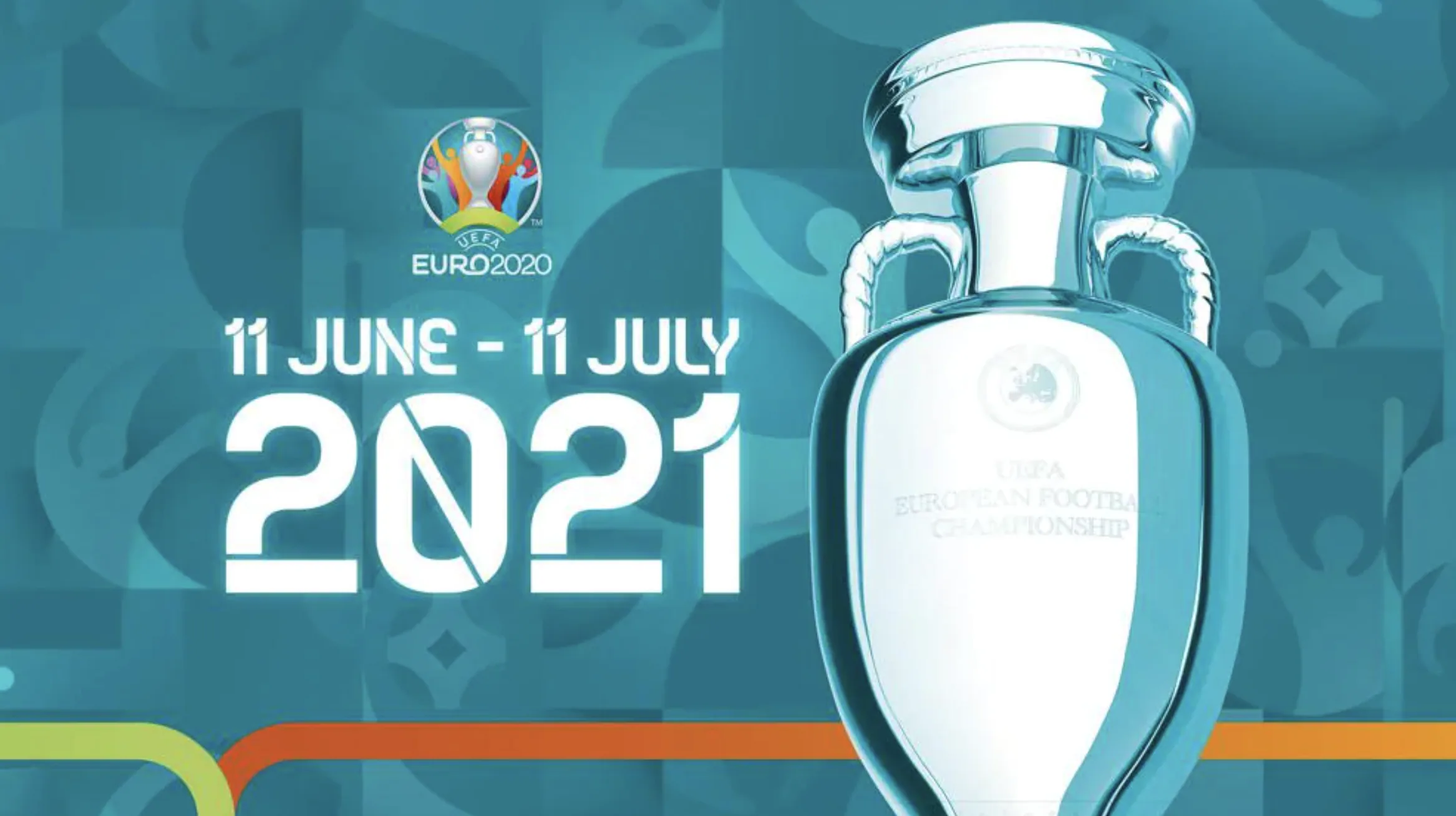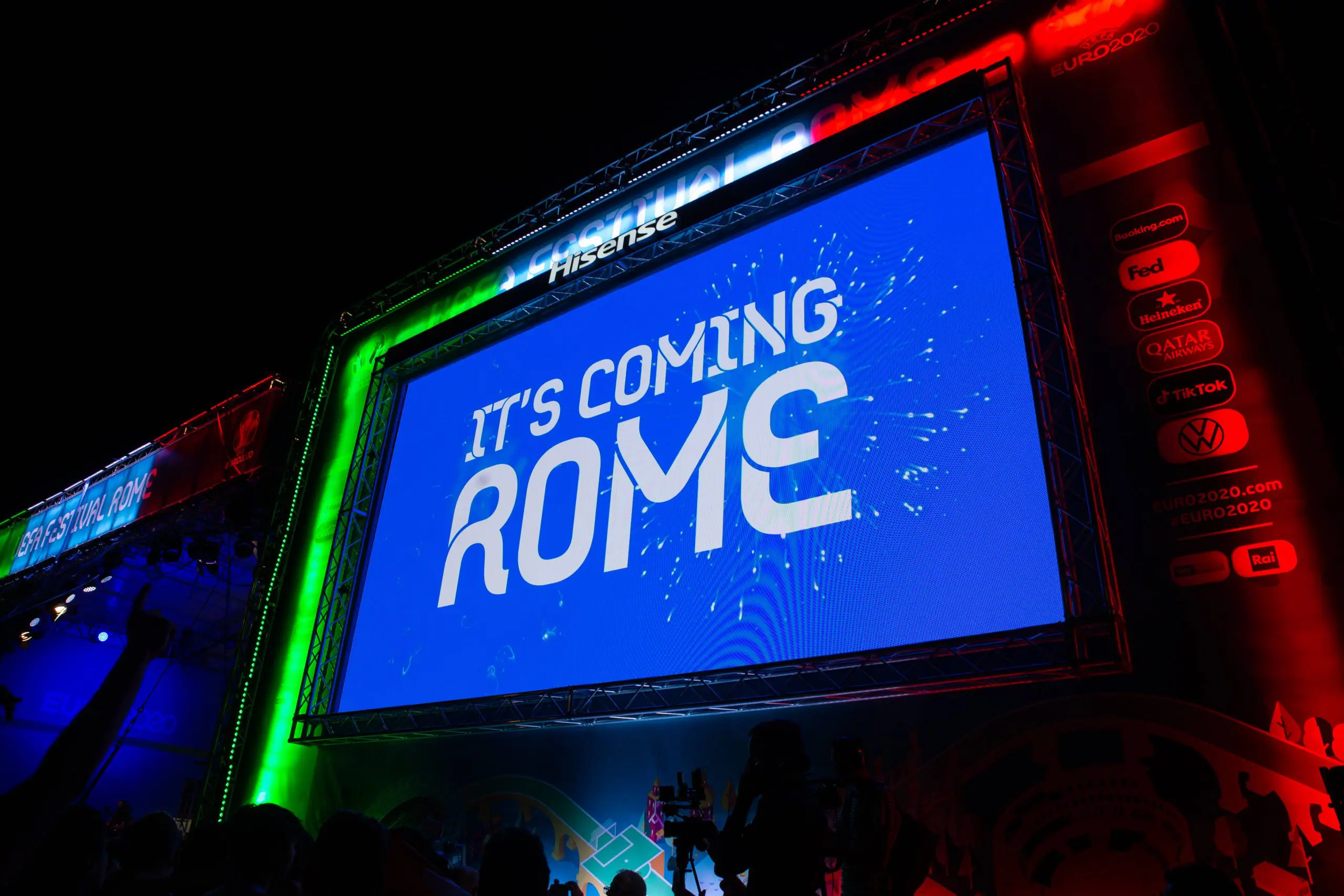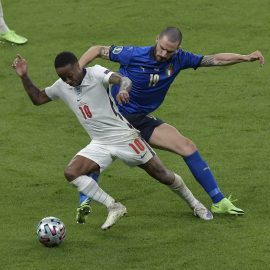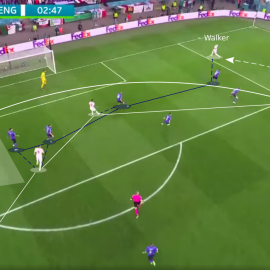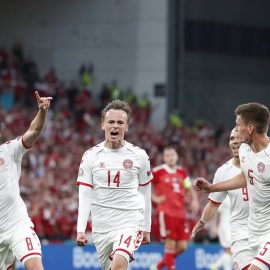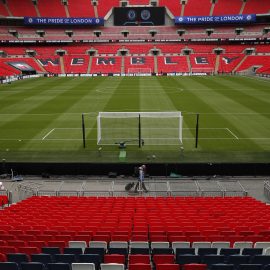The second matchday of Euro 2020 once again featured 24 nations participating in 12 fixtures across the six groups, and there is lots to unpack from the week’s action. So, let’s get straight into it in this review:
Group A
Turkey and Wales faced off in Baku for the Group A opener, and it certainly was a tense affair as the two sides were fighting to have a realistic chance of reaching the knockout phase.
Turkey looked rather hopeless against Italy, and they weren’t particularly good in the first half here either as their defence was pulled apart effortlessly. There was space available almost everywhere in their half.
Gareth Bale often dropped deep for Wales, and from such positions, he attempted a fair few chipped passes behind the Turkish backline.
Aaron Ramsey was most often the recipient of these as he made runs through the gap between Turkey’s centre-backs, and although he missed two presentable chances, he was lucky to give his side the lead at the end of the first half.
A couple of half-time substitutions made by Şenol Güneş looked to correct this issue, but they did not make Turkey any better in possession as their ball progression options were limited and Burak Yılmaz was hopelessly isolated upfront in transition.
A missed penalty from Bale looked to swing momentum away from Wales, but Turkey could never really trouble Danny Ward, and in the end, a moment of brilliance by the Real Madrid forward led to a 2-0 victory for Robert Page’s men.
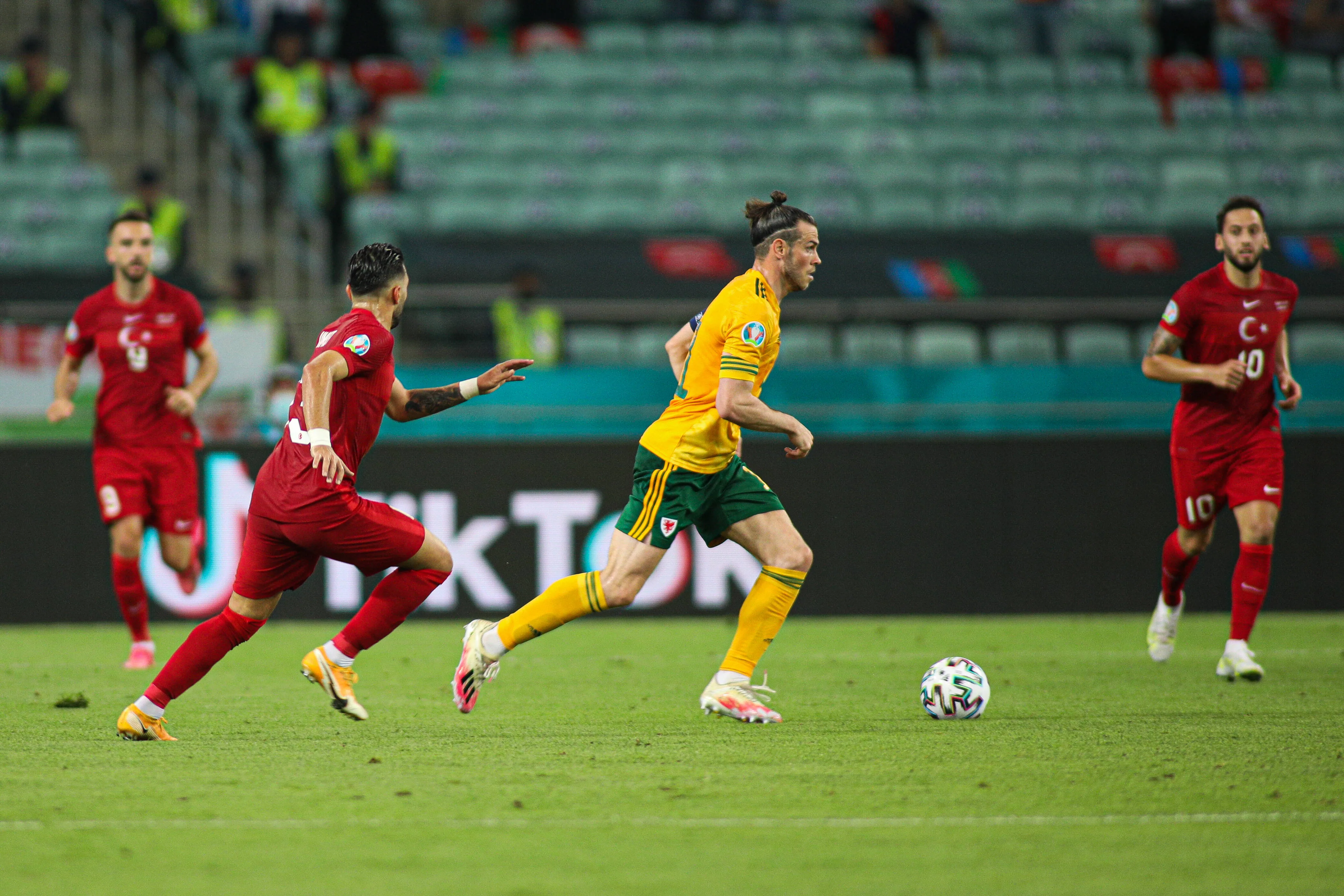
Italy faced Switzerland later that night, and they continued their imperious form from the tournament-opener in Rome.
Roberto Mancini made only one change to his line-up as Giovanni Di Lorenzo replaced Alessandro Florenzi at right-back (just as he did at half-time last week), so the overall dynamics in the 4-3-3 were not meddled with.
Switzerland were initially set up in a mid-block with a light press, but Italy were easily able to open them up (particularly on the flanks) and also looked quite potent in transition.
After conceding and coming out for the second half with a deficit to overturn, they employed a very high press, but the Italians calmly navigated their way past it.
Locatelli capped off a brilliant performance by adding a second goal through a deflected strike before Ciro Immobile made it 3-0, and that was the cherry on top of a dominant display from the hosts.
These results mean that Italy have secured qualification to the knockouts, and if they avoid defeat next week against Wales, they will progress as group leaders.
Wales only need a point to secure direct qualification to the round of 16, which means that Switzerland’s match against Turkey will be the one to watch, as only a win could see either side even have half a chance of avoiding elimination.
Group B
Finland’s visit to St. Petersburg was the first clash of matchday 2, and although it might not have grabbed too many headlines, it was certainly an interesting battle.
Russia’s failed attempt at using a back-four against Belgium (which only lasted 45 minutes) was not recreated here, as they operated in a 3-4-2-1 of sorts with Anton Miranchuk and Aleksandr Golovin working with a fair bit of positional freedom behind Artem Dzyuba.
Finland’s game plan did not change from what we saw against Denmark – they were happy to sit back and absorb the pressure in their 5-3-2 before springing forward on the break, as Teemu Pukki and Joel Pohjanpalo looked to make the most of whatever service they got.
Winning the ball in midfield was key for this, but in the end, a failed transition in the centre of the park caused the visitors to concede on the stroke of half-time as their defence was tiring, and that proved to be the difference in the match.
Belgium travelled to Copenhagen the next day, and they were in for a tougher battle than expected.
Denmark pounced on a misplaced pass from Jason Denayer in the first couple of minutes to take the lead, and their superb game plan took over thereafter.
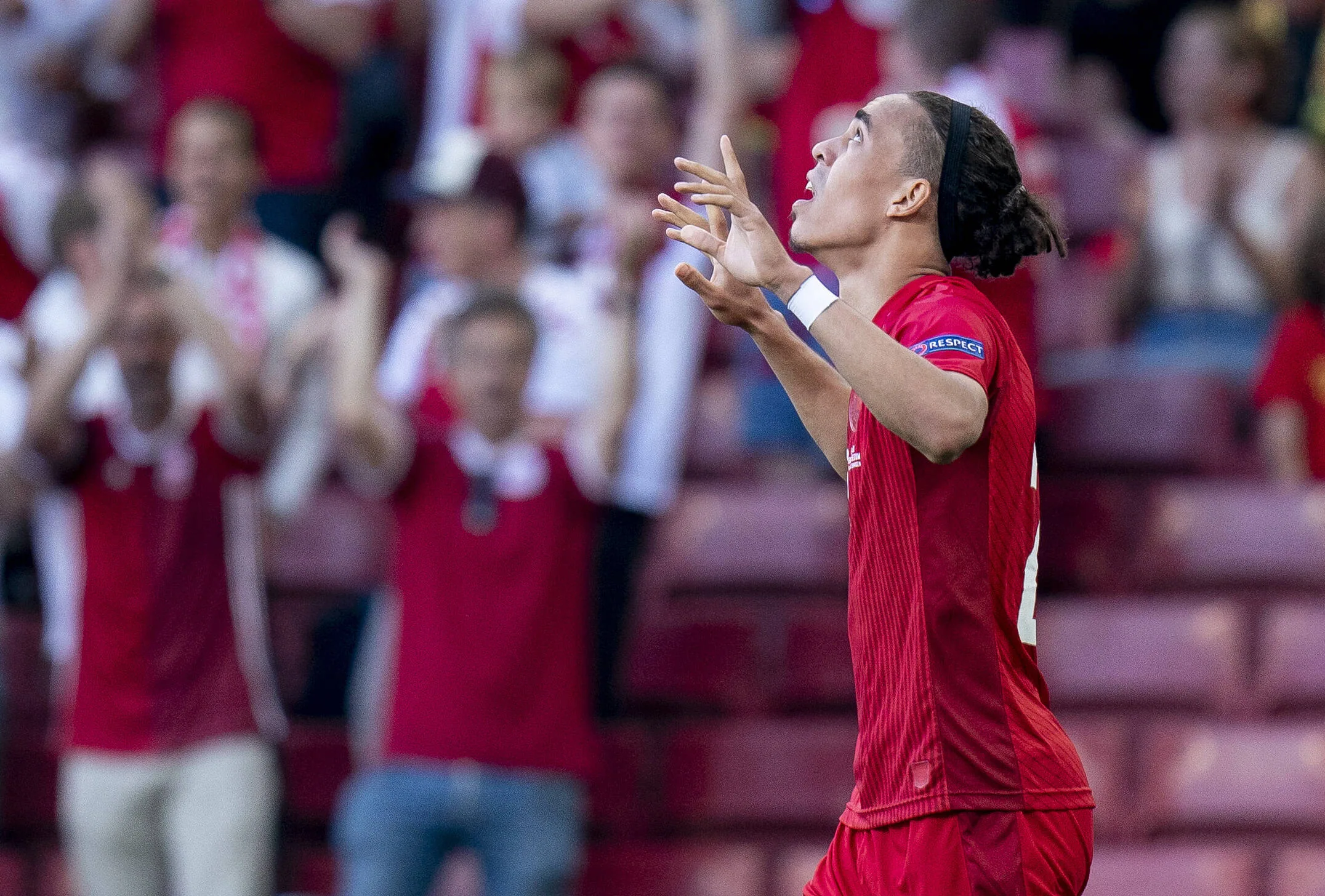
The hosts switched to a back-three as they mirrored their opponents’ 3-4-2-1, with the centre-backs staying very tight to Romelu Lukaku and the two Belgian inside forwards.
This restricted their opponents to just one shot in the first half, as their front line was barely able to get into the game with the midfield overrun in a two-on-two and the wing-backs matched head-on by their counterparts as well.
This, coupled with a smart high press, caused many problems for Belgium.
Roberto Martínez had an ace up his sleeve, though, and that was Kevin De Bruyne. The Manchester City midfielder replaced Dries Mertens on the right of the attack, but he often drifted centrally, freeing up Lukaku to make runs down his favourite channel.
He beat Simon Kjær on the Danish left channel on one occasion in the second half, and that was all that was needed for an equaliser as De Bruyne’s creativity stole the show.
The ex-Wolfsburg man then went on to cap off another brilliant team move (started by, you guessed it, Lukaku) with a powerful strike from just outside the box.
Although Denmark had a few good chances to equalise, with Martin Braithwaite even hitting the crossbar, they fell short in a 1-2 defeat.
Belgium’s victory means that they have now secured progression to the round of 16. Finland are the only side that can knock them off the top spot by defeating them on matchday 3, but that certainly is unlikely.
Russia’s match against Denmark will be the really spicy one, as the Danes have the slenderest chances of avoiding elimination while the Russians need to better Finland’s result to book a berth in the last 16.
Group C
Ukraine and North Macedonia on a Thursday afternoon was exactly what the Euros are about, as the teams did not fail to deliver.
Andriy Shevchenko’s side looked much better in the first half as they were able to control the midfield and got in behind the opposition wing-backs on a few occasions too.
It was a set-piece that broke the deadlock in the end, but a slick attacking move made it 2-0 soon thereafter.
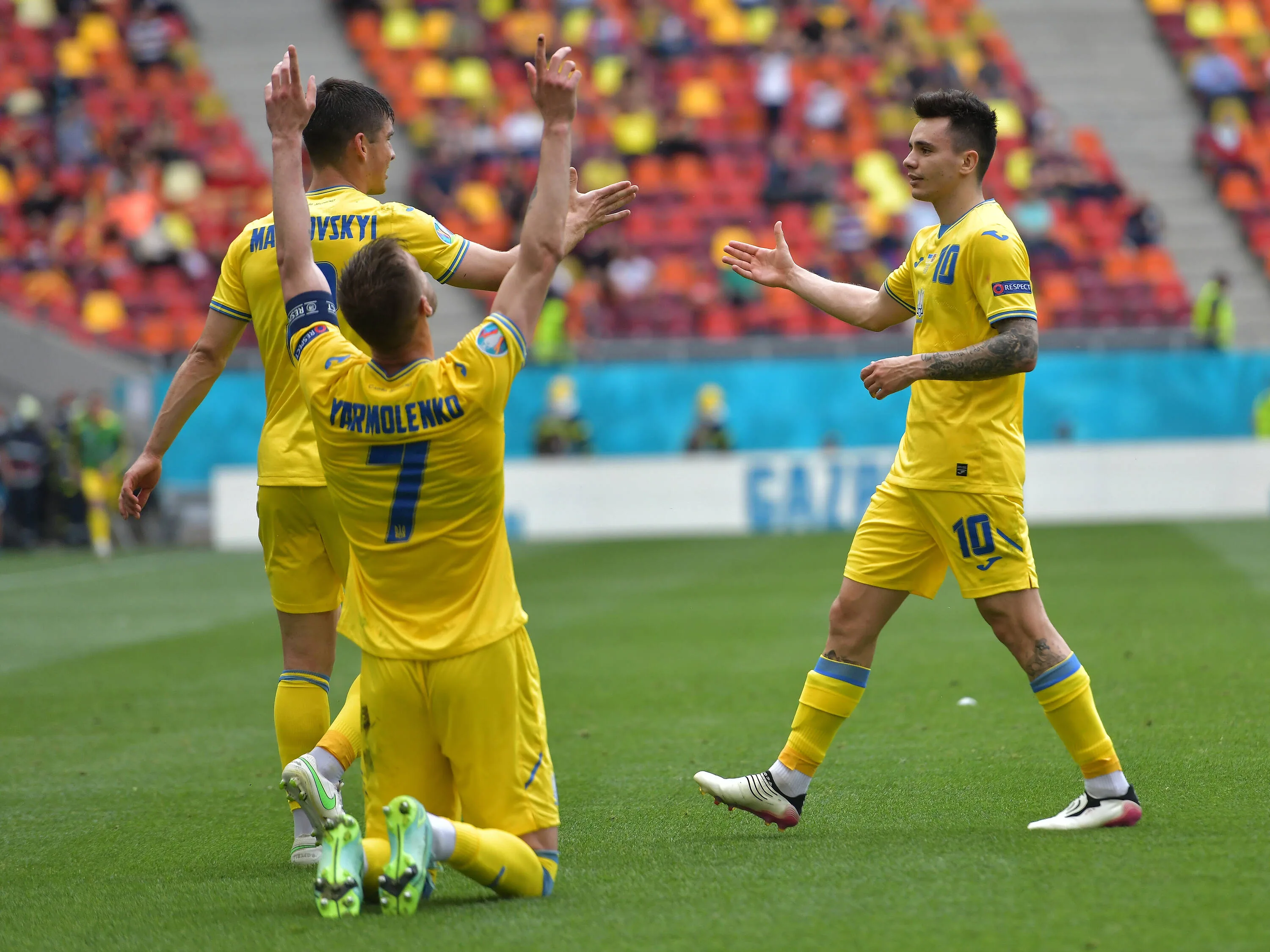
After a couple of half-time substitutions, North Macedonia came out looking much better in the second period.
It wasn’t long before they won a penalty. Although Ezgjan Alioski’s effort was saved by Heorhiy Bushchan (who had a splendid game overall), the Leeds United defender scored the rebound.
Although they were defending for long periods, Ukraine had better chances thereafter, with Malinovskyi failing to convert a penalty himself in a 2-1 win.
The Netherlands met Austria in the other group fixture, which was another tense battle. Both sides stuck to the systems we had seen in their matchday 1 games, so the Dutch had a 3-4-1-2 up against an Austrian 3-1-4-2.
Franco Foda persisted with David Alaba as the middle centre-back, and it did hurt him this time as his captain looked quite shaky and gave away a penalty.
Austria also looked clueless in the final third as they failed to get their front-two involved in the match, so their centre-backs managed more shots than the strikers that started the match.
Their high defensive line was susceptible to being breached in transition too, so although the final score was 2-0, The Netherlands could easily have had more.
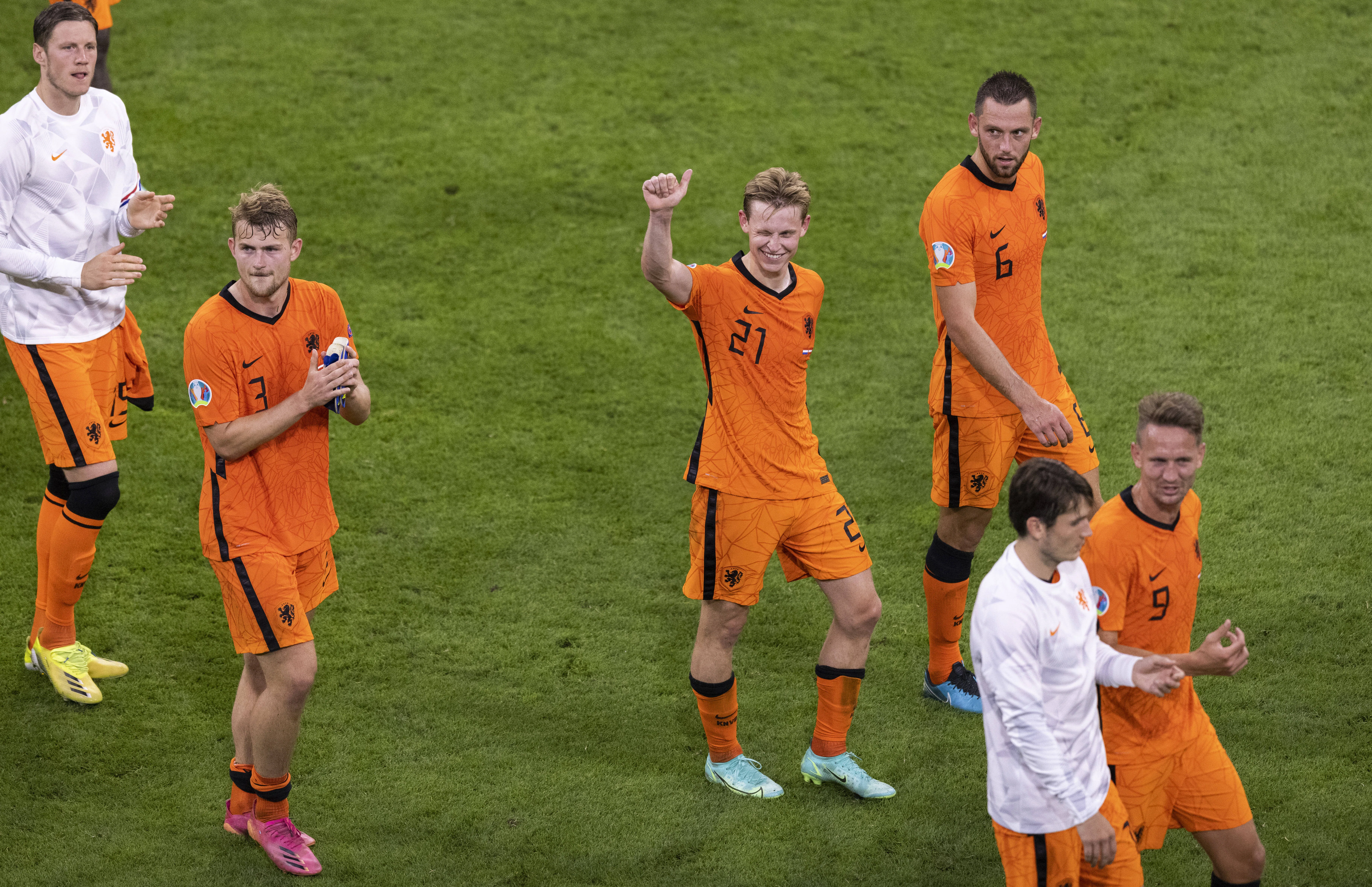
Frank de Boer’s side have a spot in the knockouts secured with that win, while Ukraine and Austria are inseparable with three points each.
North Macedonia’s chances are limited, to say the least, so it will most likely all boil down to Ukraine’s clash against Austria, where the former have the upper hand with a superior goal difference.
Group D
The first of the two back-to-back Group D games involved The Czech Republic and Croatia, who faced off in Glasgow Park.
The two sides seemed evenly matched despite their qualitative differences, partly thanks to their differing form, but also because the Czechs were settled in their system while Croatia moved from a 4-3-3 against England to a 4-2-3-1 here, with Marcelo Brozović benched to accommodate an extra attacker.
Much did not change in the first half, though, as Zlatko Dalić’s side struggled to play through the midfield, and Ante Rebić was terribly isolated. There was little wing play, as Ivan Perišić had a negligible impact on the match on the right.
Two half-time substitutions, including the introduction of a pure striker Bruno Petković had the desired impact, as Perišić equalised early on in the second half after a controversial Patrik Schick penalty had made it 1-0.
The rest of the match was end-to-end as both sides threatened, but neither could alter the scoreline.
The headline clash of the matchday (at least for British fans) was England’s match against Scotland at Wembley, which was the 100th competitive clash between the two neighbours.
The hosts started well by using similar combination play on either flank to what we saw against Croatia, with full-backs being used to bypass the central block, but Scotland quickly adapted and split their two strikers in a 5-3-2.
Therefore, England looked rather clueless for most of the first half, and much was not changed in the second period either.
The only substitution made before the 70th minute saw Jack Grealish replace Phil Foden, but the Aston Villa man could not grab the game by the scruff of the neck either, so the two teams had to settle for a goalless draw.
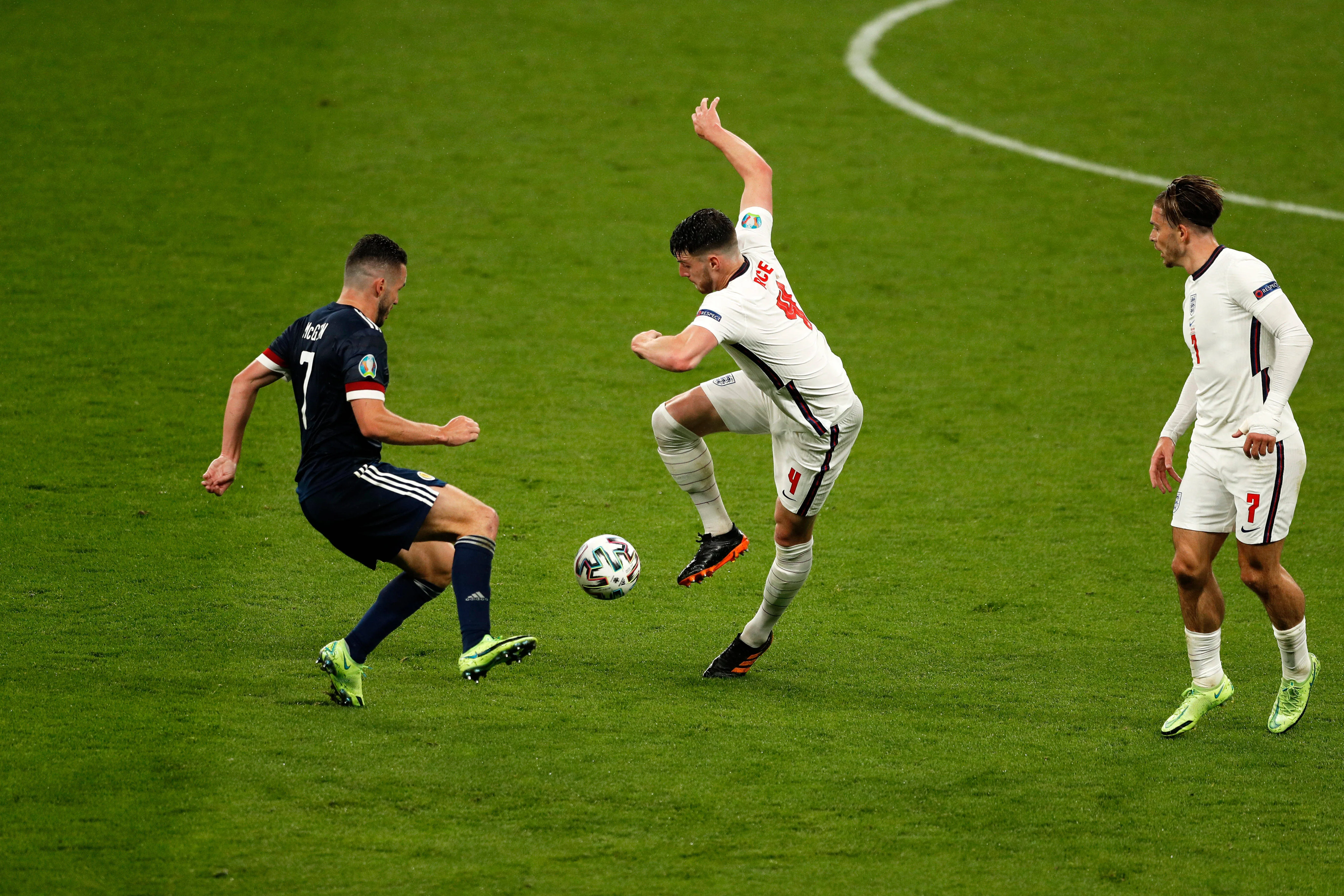
Four points for both the Czech Republic and England mean that they should be in a position to reach the round of 16, but they cannot get too comfortable and should aim to at least avoid defeat in their last match.
Croatia and Scotland are the two sides on just one point, though, and given that their recent performances have been quite different and both sides will have to win when they meet on matchday 3, their game could be the most intriguing across the groups.
Group E
Sweden versus Slovakia on a Friday afternoon was exactly what the Euros are not about, as the teams failed to deliver any excitement.
Sweden’s 4-4-2 in possession lacked any clear build-up patterns apart from Emil Forsberg coming inside and Alexander Isak being Alexander Isak, but that was not enough to break the Slovakian block down, at least in the first half.
The only real memory to take away from it was Marek Hamšík absolutely bossing proceedings all over the pitch.
There was something for the highlights reel in the second half as both sides began to enter the opposition box on occasion.
Ultimately, Sweden broke through with Isak slipping substitute Robin Quaison in behind and Martin Dúbravka to bringing him down unfairly, with Forsberg slotting the spot-kick home with inch-perfect precision.
Poland’s visit to Spain was the last matchday clash as the Group F games were played in the earlier kick-off slots. Although it wasn’t the explosive end to a cracking round of fixtures, it certainly had many intriguing undertones to it.
The visitors completely rejigged their midfield after the disappointing loss to Slovakia. There were a few tweaks in attack as star striker Robert Lewandowski operated off the left predominantly instead of the right.
Luis Enrique only made one change to his side, with Gerard Moreno replacing Ferran Torres on the right wing, which meant that Spain had no natural wide player on that side as Marcos Llorente continued at right-back.
Dani Olmo’s usage as a left-winger on paper left Jordi Alba as the only player who could naturally stretch the opposition horizontally, so Spain did not look too bright to put it kindly.
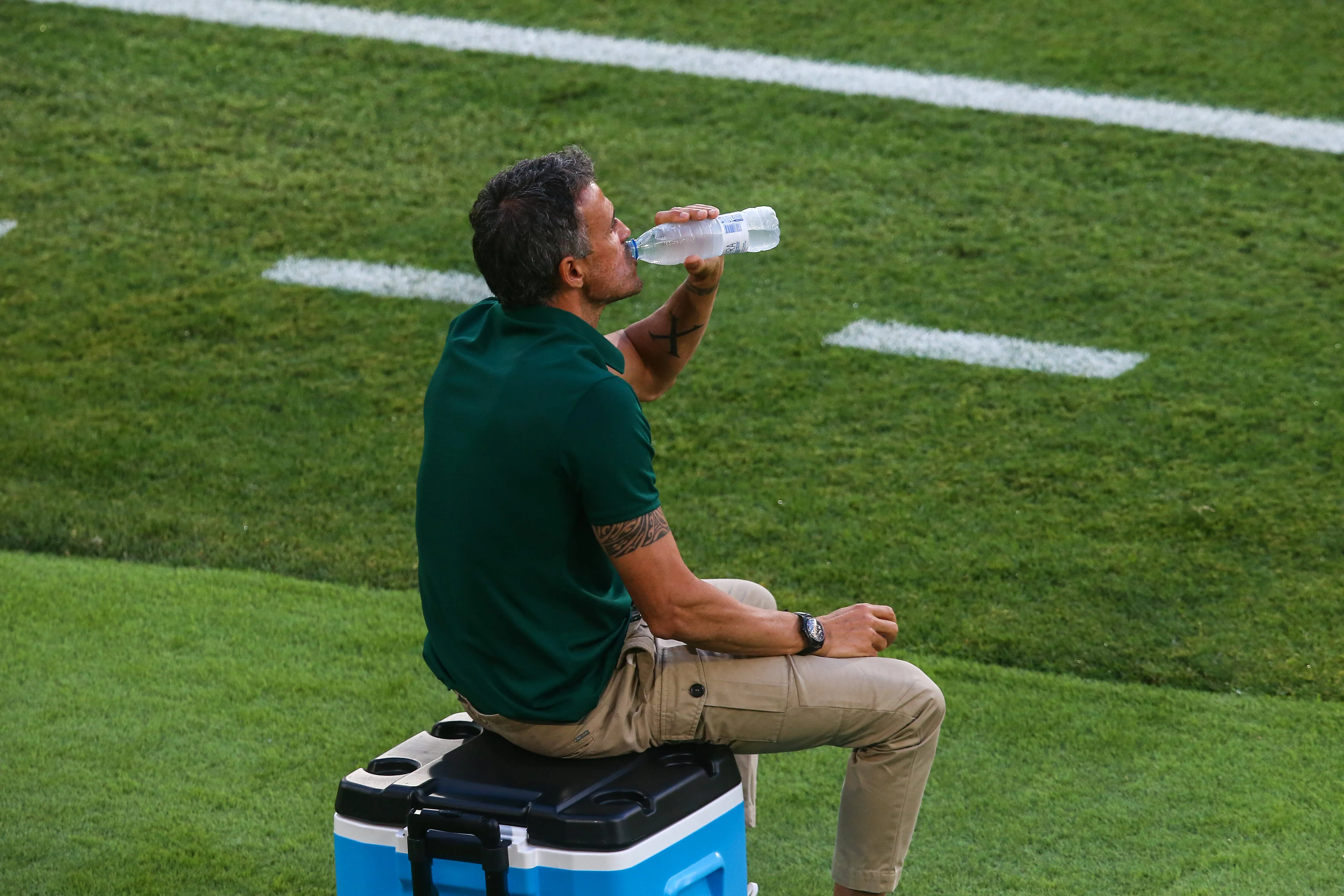
The spotlight, however, was on Álvaro Morata. The Spanish striker had a really poor game last week, drawing lots of criticism from the media and fans alike for his poor finishing but receiving public reinforcement from his manager, who guaranteed that he would start in his pre-match press conference.
He repaid the faith in poetic fashion, scoring one of his trademark offside goals only to have it legitimised by VAR.
However, after Lewandowski equalised in the second half, Morata missed an open goal on the rebound off Moreno’s missed penalty and a couple of subsequent chances, so his day was very much mixed on the whole.
This group is quite likely the one with the maximum permutations possible on the final matchday, as the teams are separated by a point each.
Sweden and certainly Slovakia would not have been expecting to be in the top-two at this stage, so Spain seriously have a job to do against the Slovaks, where a win will quite possibly be necessary for them to progress.
Poland’s chances are very slender, but they will need to comfortably get the better of Sweden and root for Spain in the other match to have any hope.
Group F
A packed Puskás Aréna once again played host to a football match in Euro 2020, as Hungary welcomed France.
Didier Deschamps’ side had done a fair bit of defending against Germany last week, but they had to be a lot more expansive this time around as Hungary once again deployed a 5-3-2 block.
László Kleinheisler delivered an absolutely inspired performance in midfield to help his side keep the French at bay, while Rolland Sallai worked his socks off to take his side forward whenever they turned possession over.
Even then, the visitors were able to fashion a fair few chances in the first half, but having squandered all of them, they were made to pay just before half-time through a counter-attacking goal where a previously-booked Benjamin Pavard could not commit a tactical foul.
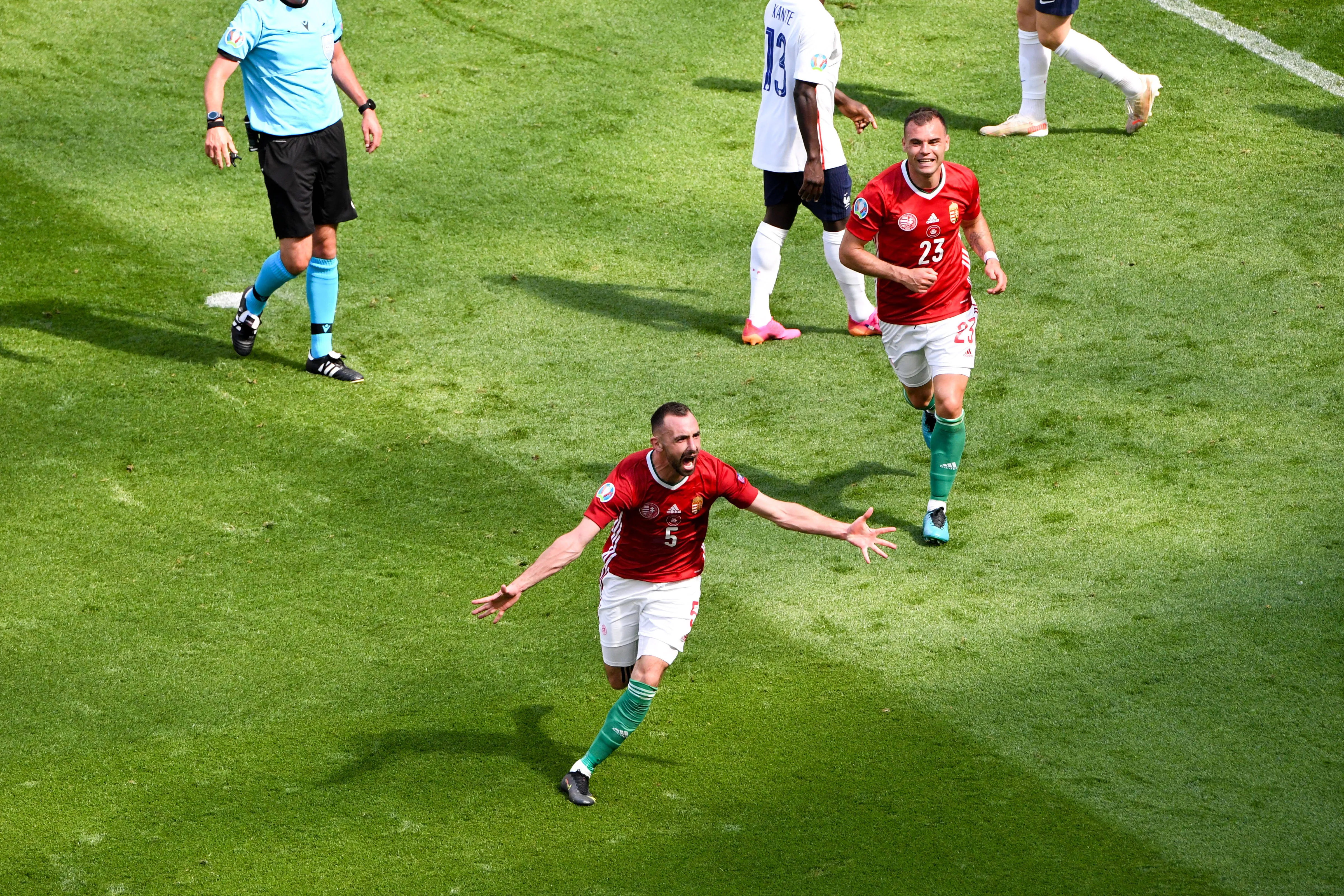
France made a couple of changes in the second half as things were not going their way, even taking off a midfielder to accommodate Ousmane Dembélé, but the goal finally came from a direct ball to Kylian Mbappé from the goalkeeper after a Hungarian set-piece led to an equaliser.
The hosts dug deep to hold on to a point in the last half hour, and their efforts were indeed rewarded in front of a joyous crowd.
Germany and Portugal participated in the ‘biggest’ clash of the round, and they certainly did not disappoint.
The hosts were clearly the better side in the Allianz Arena event though neither manager made a single change to their line-ups from sub-par showings last time out.
Despite that, Portugal took the lead with their first shot as Cristiano Ronaldo led a counterattack from a defensive corner, with the Germans completely getting caught out.
They soon fought back, though, using their superiority on the flanks (where Portugal’s wingers failed to track the opposition wing-backs, who stayed very high up the pitch) to good effect.
Robin Gosens, who was the first man to put the ball in the back of the net (the goal was ruled out by VAR for offside), set up the equaliser after arriving late at the back post to meet a Joshua Kimmich cross yet again, before a second Portuguese own goal, this time from a Kimmich cross, turned the match around.
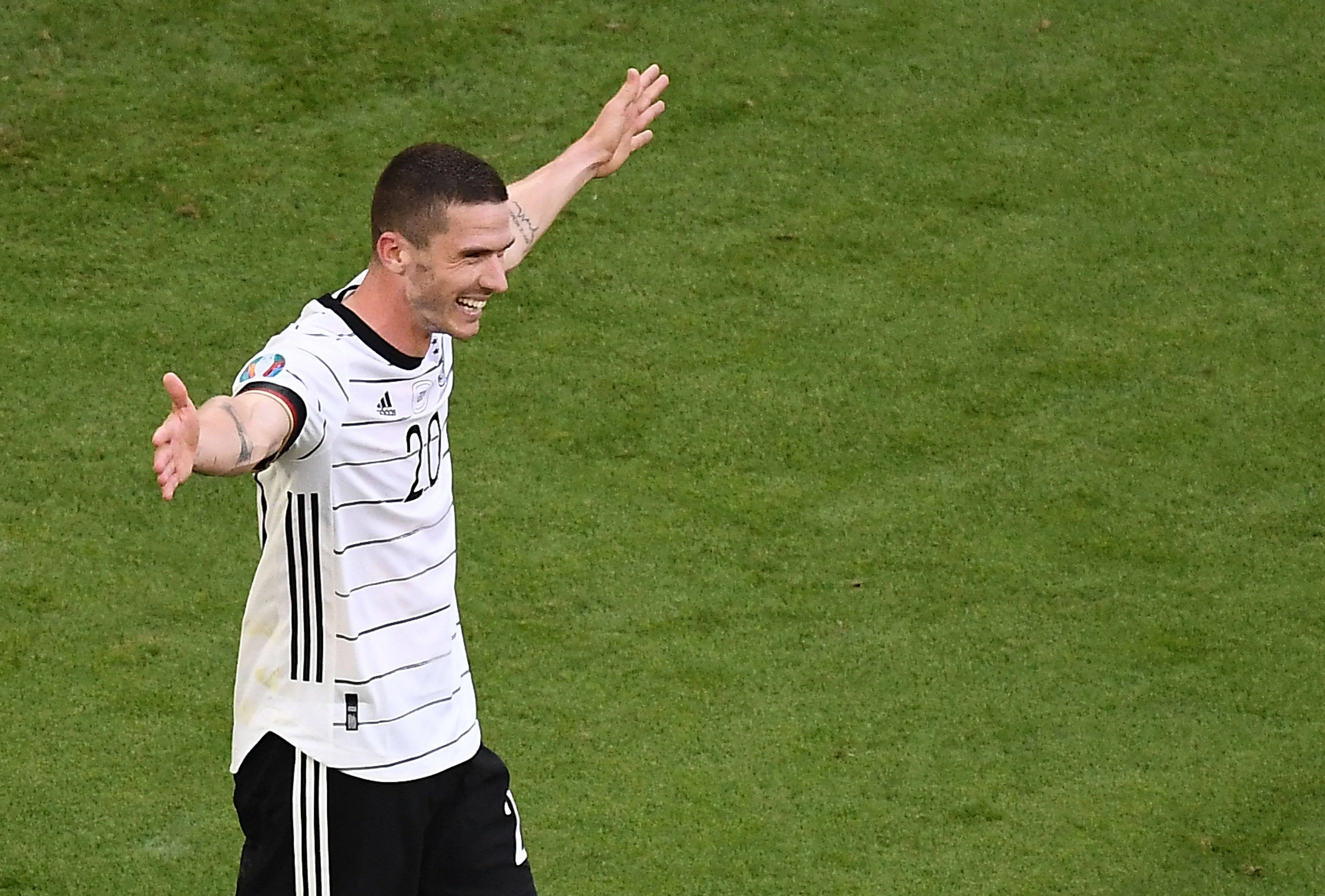
There was more of the same in the second half, and although Fernando Santos tried to make a few changes for Portugal, his insistence on sticking with an obviously flawed system in this match ended up costing his side.
Germany did look weak from set-pieces (at either end), but their overall dominance was enough to earn a 4-2 victory.
With the three big-hitters in this group having crossed the three-point mark already, they may all progress to the knockout stage.
It should be noted that Hungary could throw a spanner in the works by beating Germany, however unlikely that may be.
The order they do that in, though, is still very much up in the air, and it will undoubtedly have a serious impact on the knockout rounds.
Also Read: Euro 2020 Fixtures & Results.
Add Sportslens to your Google News Feed!
